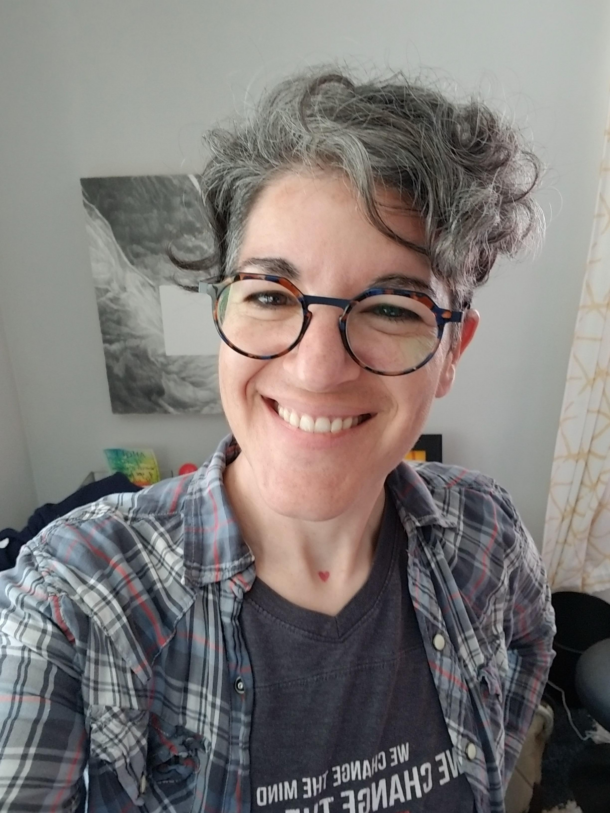During a recent evening of errands, I suggested adding a bookstore to our stops. I had recently listened to Between the World and Me by Ta-Nehisi Coates through the library’s app and, for all the reasons of access and putting my money where my heart is, I wanted to buy a copy. There wasn’t any urgency, though, so after I suggested the stop, I un-suggested it, or tried to, but Theresa was intent on making it happen.
Right there, on the front table of the store, sat the book just behind a sign announcing a half-off sale.
“I’m really glad I insisted we come in!” Theresa said when she saw the sign, wearing the smile that inevitably accompanies moments in which she feels pleased with what she’s done or said.
These occasional pronouncements of her own job-well-done and her glowing expression of self-appreciation never fail to charm and, honestly, astonish me.
Theresa is as vulnerable to gremlin chatter as the rest of us. In fact, if anything, she’s on the tender side of the scale. I have countless examples of her tenderness, some stemming from moments as benign as when our tendency to crowd together on the couch results in a stray elbow to the ribs or some such unintentional bump, which inevitably leads her to agonized apologies. For an accident. That didn’t even particularly hurt.
See why I might be both surprised and delighted by how she is also able to own, and with such gleefulness, when she’s done things well?
What Theresa models so beautifully in those moments is something I see lacking most elsewhere: A willingness to feel self-acknowledgement as healthy and joyful, as part of a well-rounded sense of self. Instead, we tend to equate self-acknowledgement with narcissism, as though noting our own accomplishments and skills is the same as ignoring the accomplishments and skills of others. We behave as though sharing that we are good at something is tantamount to suggesting that we are paragons of humanity, models of perfection.
So often, we work from a social mythology that insists that humbleness is the same as self-denigration rather than an honest acceptance of our abilities coupled with an appreciation for what we have left to learn.
And this, my friends, is a lose/lose. Not only do we withhold the self-knowledge that would help us build confidence (which leads to courage which leads to things like challenging ourselves to learn and grow even more), we also withhold our best from those who are in a position to do things like hire us for the job we want, give us the promotion we’ve earned, or utilize the services or products we’ve built a business around.
Never in the history of humanity has there been anyone with quite your blend of genetics and experience. That’s not fanciful; that’s factual. Isn’t it just logical that you add something unique to this world?
